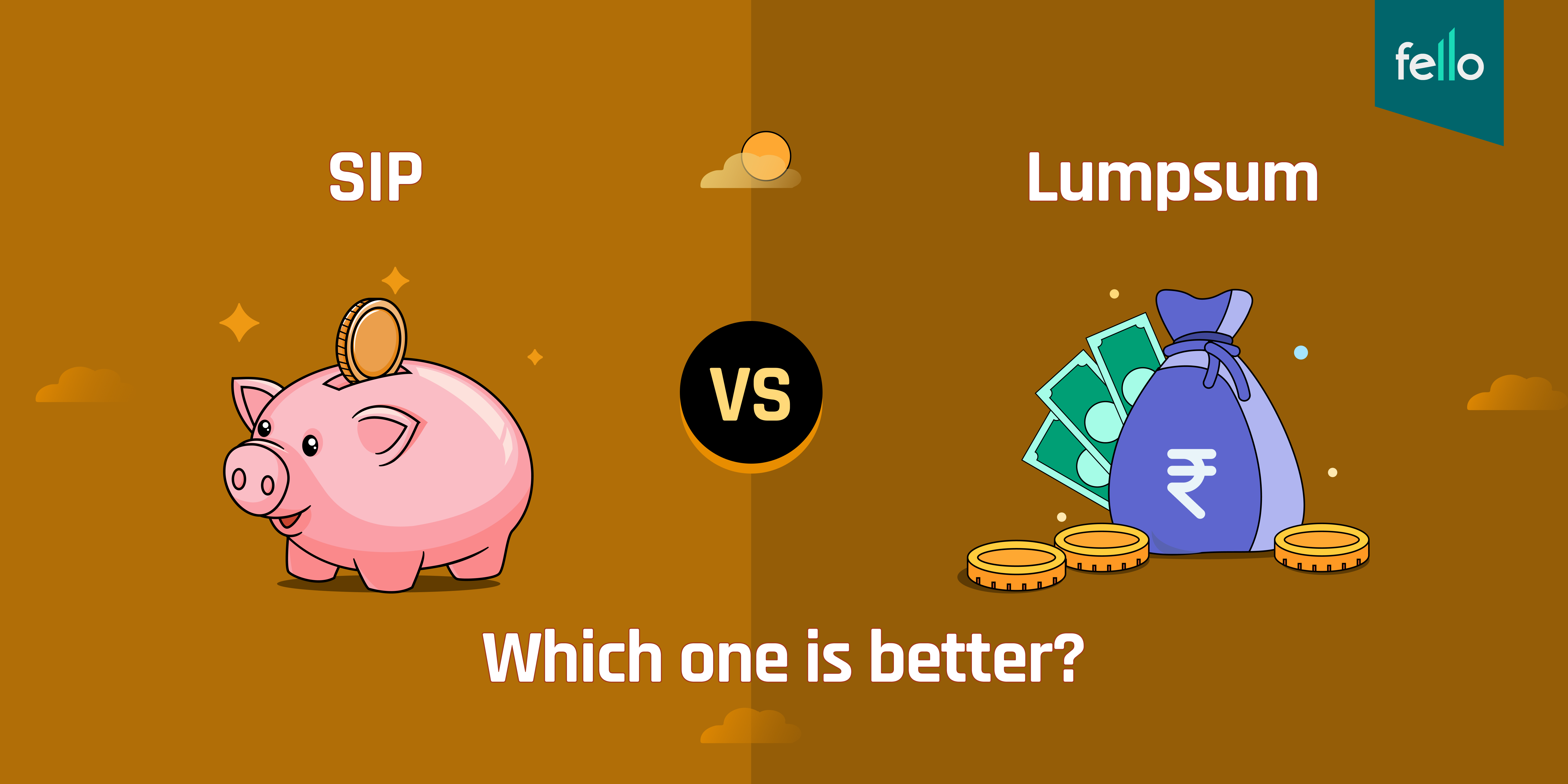When it comes to investing in mutual funds, investors often get stuck between Systematic Investment Plans (SIP) vs lump sum investments. Both methods have their own advantages and risks, making it essential to choose the right approach based on your financial goals, risk appetite, and market conditions.
In this guide, we will compare SIP vs lump sum investments, highlighting their differences, benefits, and which one is better suited for different investors.
What is SIP?
A Systematic Investment Plan (SIP) is a method of investing in mutual funds where you contribute a fixed amount at regular intervals (monthly, quarterly, etc.). This strategy helps in rupee cost averaging and reduces the impact of market volatility.
Benefits of SIP:
- Affordable: Start investing with as little as ₹500 per month.
- Disciplined Approach: Encourages regular investments.
- Reduces Market Timing Risk: Helps avoid investing at market highs.
- Compounding Growth: Long-term investments benefit from power of compounding.
For more on starting SIP investments, read What is SIP? How to Start Investing in SIP?.
What is Lump Sum Investment?
A lump sum investment is when an investor invests a large amount of money at once in a mutual fund. This approach is suitable for those with a large corpus looking for potential higher returns.
Benefits of Lump Sum Investment:
- Higher Returns in Bull Markets: Investing at the right time can yield significant returns.
- No Regular Commitment: Unlike SIP, you don’t need to invest periodically.
- Better for Windfall Gains: Ideal for investors with surplus funds.
SIP vs Lump Sum: Key Differences
| Feature | SIP | Lump Sum |
| Investment Type | Fixed periodic investments | One-time large investment |
| Risk | Lower due to rupee cost averaging | Higher due to market timing risks |
| Market Volatility Impact | Spreads out risk over time | Immediate impact on returns |
| Best For | Salaried individuals, beginners | Experienced investors with a lump sum amount |
| Flexibility | Can be modified or stopped anytime | Investment is locked-in once made |
Which One is Better: SIP or Lump Sum?
The choice between SIP vs lump sum depends on several factors:
1. Market Conditions
- If the market is volatile or uncertain, SIP is better as it helps in rupee cost averaging.
- If the market is in a bullish phase, lump sum investments can generate higher returns.
2. Investor Profile
- SIP is ideal for beginners and salaried individuals who want to invest systematically.
- Lump sum is better for experienced investors who can analyze market trends and invest at the right time.
3. Risk Appetite
- SIP is low risk as it spreads investments over time.
- Lump sum carries higher risk since the entire amount is exposed to market fluctuations at once.
To improve your financial planning, explore 5 Easy Ways to Improve Your CIBIL Score.
Conclusion
Both SIP and lump sum investments have their own advantages. If you have a steady income and want to invest systematically, SIP is the better choice. However, if you have a large sum ready to invest and can time the market well, lump sum investments can yield higher returns.
To start your investment journey, check out How to Invest in Gold through SIP?.
FAQs
1. Which is better, SIP or lump sum?
SIP is better for market volatility protection, while lump sum works well in bullish markets.
2. Can I switch from SIP to lump sum investment?
Yes, you can switch or increase your SIP contributions when you have surplus funds.
3. Is SIP good for long-term investment?
Yes, SIP is ideal for long-term wealth creation due to rupee cost averaging and compounding.
4. Can I invest in both SIP and lump sum?
Yes, a combination of both can be an effective strategy to balance risk and returns.
5. What happens if I stop my SIP?
You won’t lose your invested money, but you may miss out on potential returns from long-term investing.

